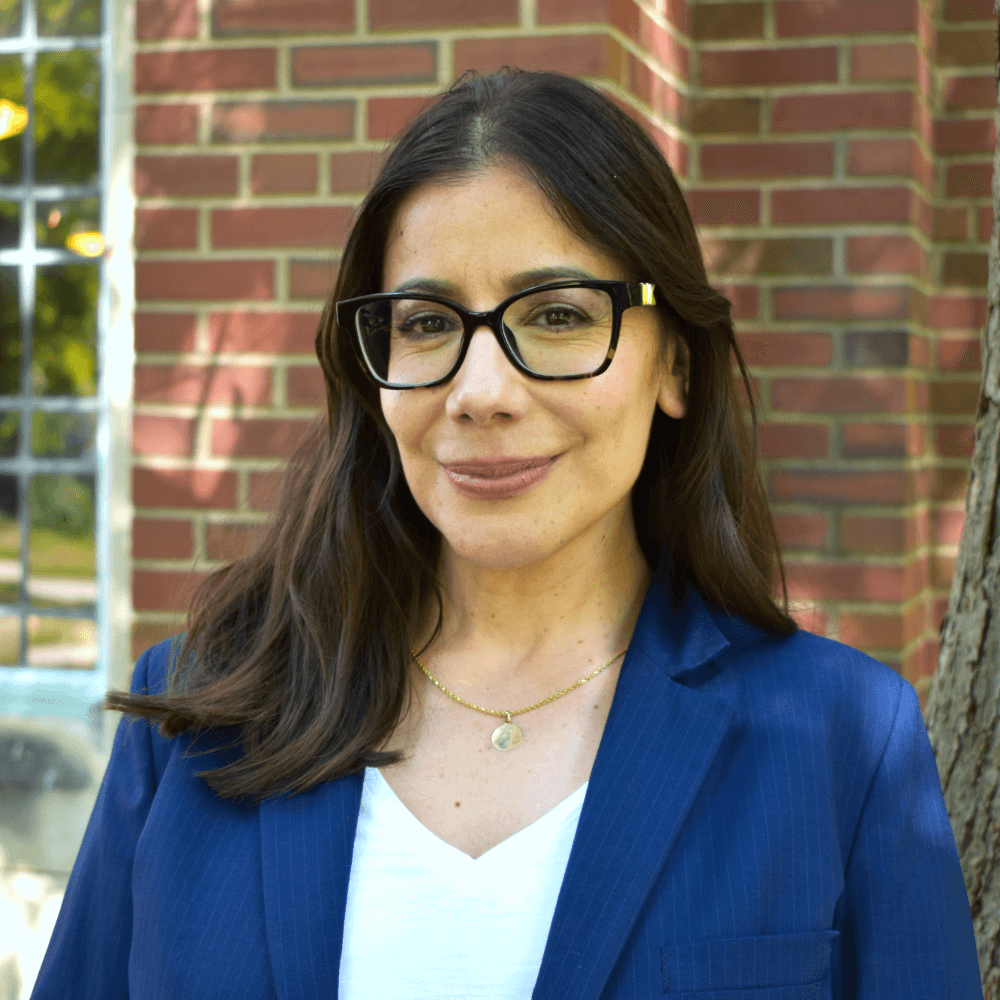Welcoming Dr. Vivian Aranda-Hughes
September 19, 2024
Content Warning: This interview discusses topics such as domestic violence and substance abuse.

Dr. Vivian Aranda-Hughes is an Assistant Professor in the School of Criminal Justice at Michigan State University.
What originally interested you in Criminal Justice?
The environment in which I grew up heavily influenced my interest in criminal justice. I have been interested in human behavior for as long as I can remember. I was a curious, yet sensitive, kid. I was especially sensitive to other people’s suffering. I also happened to grow up in poverty and lived in neighborhoods where crime and violence were common, including in my own home. My father was an alcoholic who was abusive. To add to the complexity, my mother, who was born in Mexico, was undocumented until I was around 10 years old, and avoided calling the police when violence occurred. Despite that, my father found himself in and out of jail throughout my life for other non-violent offenses, such as drinking and driving. Later in life, I learned that he had spent time in prison for armed robbery. My interest in human behavior and its intersection with criminal justice originated from personal experience and was driven by my desire to understand how my family ended up in the circumstances in which we did and the consequences of these circumstances.
What are your research interests and what sparked that interest?
My research interests include corrections (especially prisons) and its intersection with human behavior and policies. I am also interested in family violence, trauma and trauma responses, gender-related issues and crime, race, ethnicity, and crime, and victimization and offending across the life-course. From the snippet of my family background that I described above, you can see that every one of my interests can be tied back to my early life experiences and the environment in which I grew up. One thing I have learned from studying criminal justice is that the circumstances surrounding my upbringing are not unique. This knowledge has only fueled my desire to understand these issues on a broader level to learn how they impact individuals and society and help to figure out what can be done to intervene.
My interest in correctional systems as organizations developed while in my doctoral program at Florida State University. I was fortunate to have been selected to assist on a large federally funded project focused on long-term solitary confinement within the Florida Department of Corrections. The principal investigators were Drs. Dan Mears and Bill Bales, two top corrections scholars. As a budding criminologist, I felt like I had won the lottery because, not only was I studying under two leading experts, but I was also studying one of the most controversial topics in corrections, in one of the largest prison systems in the country. The project was a four-year project, and I learned more than I could have imagined. It was during this project that I recognized how the correctional environment affects not only the incarcerated, but those who work there as well. For example, prisons have been experiencing a severe staffing shortage, which has impacted prison operations and, in many cases, the ability to adequately rehabilitate incarcerated people. The conditions have led to staff stress, burnout, and more resignations. In some cases, the staffing shortages have also led to increased violence and reliance on solitary confinement. There is not any one single solution that will fix the staffing crisis. I have a couple of ideas of where we can start, but we still have a lot to learn so that we can figure out how to solve these issues permanently.
What is your favorite part of teaching?
My favorite parts of teaching are the students and being able to pass on knowledge. Teaching has taught me the meaning of academia and its purpose. As teachers, we are here to learn as much as we can so that we can teach others. We transfer knowledge so that we can continue to evolve as a society. Yes, we have the internet that can tell us lots of things. But that information comes without teaching us how to critically evaluate the information. I work hard to ensure that my teaching is led by facts and prior research and not my own emotions. I encourage students to approach their studies in the same so that they can think critically about the information.
What has been your favorite part of joining the School so far?
Everything. As faculty in the School of Criminal Justice at Michigan State University, I can proudly state that I have the privilege of working alongside some of the world’s top criminologists. These are faculty who care deeply about the issues, students, and academia. We all come from different backgrounds but what brings us together is our desire to learn and to teach others in meaningful and impactful ways. We value academia and its purpose. So, we strive to bring a world class education to students. We have amazing students who are curious. They want to learn. I think it is pretty cool to be part of a community that wants the very best for our students, because when we invest in students, we invest in the broader community.
What is a fun fact about yourself that you’d like to share
My first language was Spanish. I also spoke and understood English, but preferred the Spanish language because I thought it had a nicer sound. As a result, I predominantly spoke Spanish until I was in first grade. When my first-grade teacher found out that I could also speak English, she asked that I only speak English while in school. I continued to speak Spanish with my mother and friends, but over time, I used it less. Today, I can understand Spanish, but rusty when attempting to speak it. When I spend time in Mexico though, it usually starts to come back to me within a few days.

